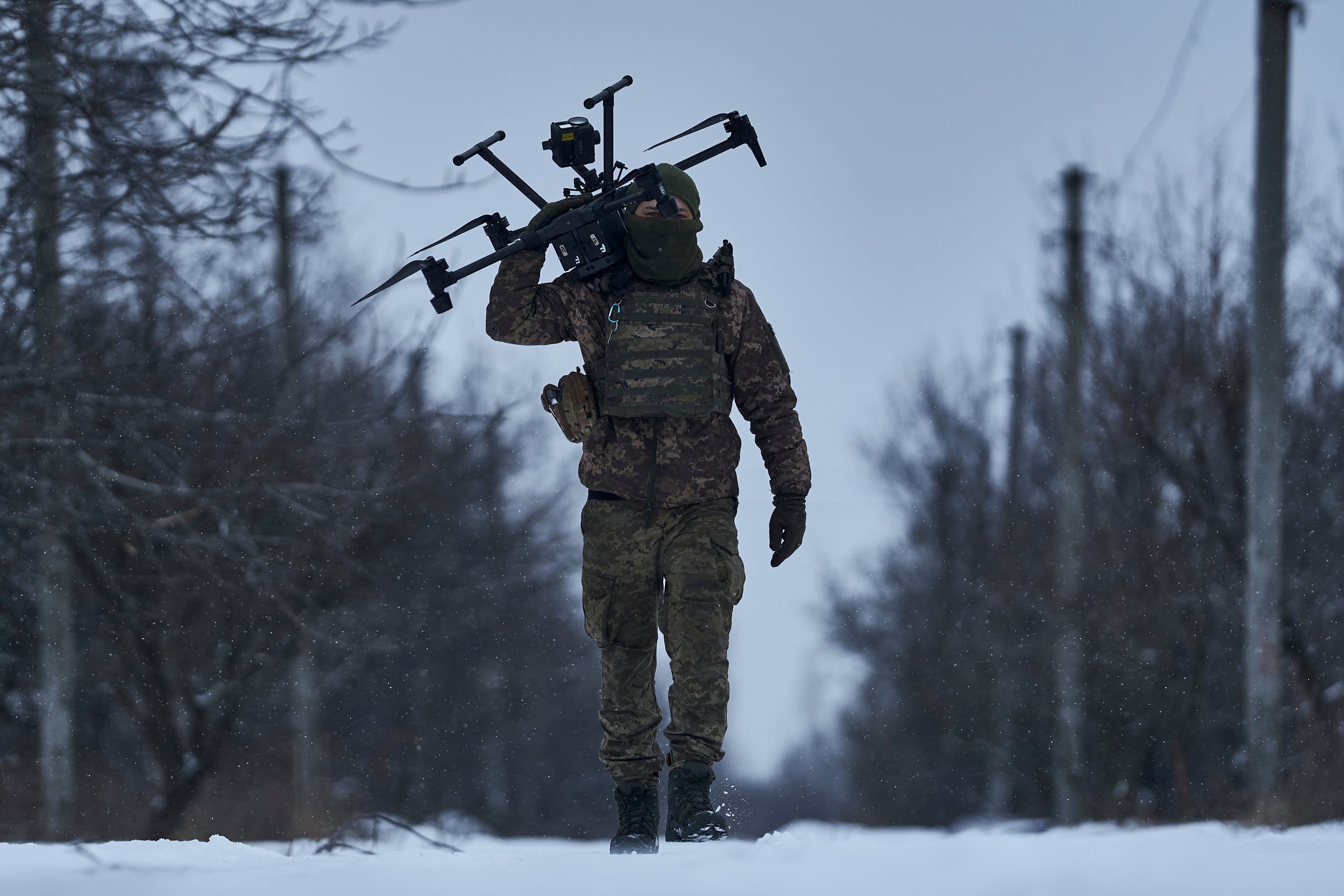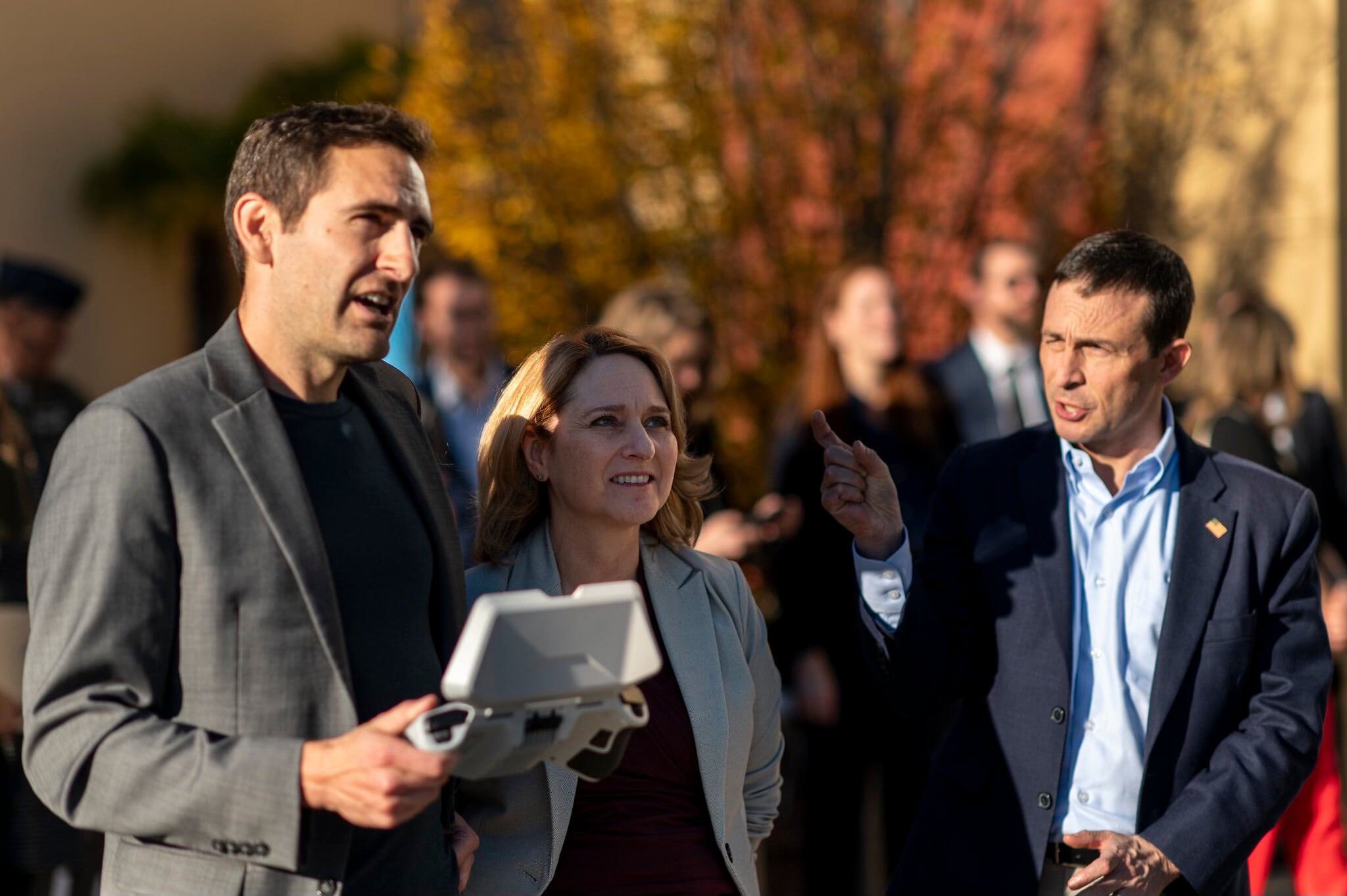For the past year here at the U.S. Army War College, we have dug into lessons America should learn from the war in Ukraine. We got some right, but hearing directly from Ukrainians at a NATO conference in Poland this past July revealed just how urgent it is that the U.S. military rapidly prepare itself for large-scale combat against enemies who fight very differently than the insurgents and terrorists we have fought for the past two decades.
In the peaceful remove of Carlisle, Pennsylvania, we came up with many applications of U.S. doctrine that seem to be working in the Ukrainian war. Those include multi-domain operations, the idea that to win in modern war you must combine operations in air, land, sea, space, and cyber.
Then there’s mission command, in which commanders tell their subordinates their intent and trust their junior leaders to determine how to accomplish it — something Ukraine has done well, and Russia has botched. Also key: the principle of protection, with twists to accommodate new enemy capabilities like ubiquitous surveillance and attack capabilities of drone aircraft and sea vessels.
Ukraine’s experience appeared to prove that large static concentrations of forces are artillery- and missile-magnets in the war with Russia, which the U.S. would surely find in a similar conflict with Russia or China, meaning we’d have to do away with the recent American tradition of large stadium-style command posts. (Insurgents tended not to have missile batteries.)
But the closer you are to a war, the more indelible and accurate the lessons. That’s why I felt so fortunate to spend a week at a NATO conference at the Polish Naval Academy in Gdynia, Poland, hearing from Ukrainians firsthand.
The Ukrainians gave presentations on the road to war, violations of the laws of war, the role of intelligence in the Ukrainian war, maneuver, fire support, special forces, air defense, the naval war — 20 briefs in all. Like their American and NATO counterparts, the Ukrainians were largely current or former military officers, many with PhD’s, all serious students of the very serious business of warfare.
It is impossible for me to overstate the importance of the information the Ukrainians provided. The purpose of the conference was to seed professional military education institutions across the United States and all the other NATO countries with knowledge fresh from the Ukrainian battlefields.
The last three days of the conference were spent in working groups of NATO representatives paired with Ukrainians to write lessons plans to be taught this coming year at our academies, staff colleges, and war colleges. The conference produced a book of lessons learned that will be shared across NATO’s 31 countries to help them prepare for future war.
Ukrainian soldiers and civilians are paying for these lessons in blood. By sharing these hard-earned lessons of war, Ukrainian military professionals are helping our military get ready for future wars that will inevitably come. The Ukrainians, even if they sometimes had to speak to us through interpreters, were incredibly generous and open in sharing what they had learned, including (for instance) body camera footage of close combat against Wagner Group operators. They withheld only information about future combat operations for obvious reasons of operational security.
It is no exaggeration to state that by sharing this knowledge from their war, Ukrainians are saving the blood of American soldiers in future wars. We could ask no more from a democratic ally that is fighting a totalitarian regime with extraordinary success, and who ask from us only more ammunition and more weapons with which to liberate their unjustly occupied free nation. The support we give them today will save American troops’ lives in days and years to come.
Glory — and gratitude — to Ukraine!
John Nagl, a veteran of both Iraq wars, is Professor of Warfighting Studies at the U.S. Army War College. The views expressed are those of the author and do not necessarily reflect the official policy or position of the Department of the Army, Department of Defense, or the U.S. government.
Have an opinion?
This article is an Op-Ed and as such, the opinions expressed are those of the author.
If you would like to submit a letter to the editor, or submit an editorial of your own, please email opinions@militarytimes.com for Military Times or our services sites. Please email opinion@defensenews.com to reach Defense News, C4ISRNet or Federal Times. Want more perspectives like this sent straight to you? Subscribe to get our Commentary & Opinion newsletter once a week.







